How to Stay Healthy Working the Night Shift

Tips for Working Nights
Suppose you're used to working days and receive an assignment that requires you to take the night shift. You may experience a rough transition, especially when settling into a new living situation and possibly a different time zone. However, when your job depends on your attention to detail and reaction time, you can't afford to lose any of your precious sleep.
Developing healthy habits while working nights is crucial; not only will the quality of your patient care increase when you're well rested, but your overall health and happiness as a traveler depend on a solid night shift routine.
Here are our recommendations for staying healthy while working nights.
Get Quality Sleep
While life as a healthcare traveler calls for packing light, consider leaving room for blackout drapes, or order them online and have them delivered to your new dwelling. Blackout curtains are specifically designed to block out virtually all external light. Eliminating light helps maintain the body's natural circadian rhythm, which can be disrupted by exposure to light at the wrong times. While primarily for blocking light, the thick and dense material of blackout curtains can also help dampen external noises. This can create a quieter, more serene sleeping environment, which is conducive to deep, uninterrupted sleep.
Looking for more ways to get some quality rest?
Sleep Tips for Healthcare Travelers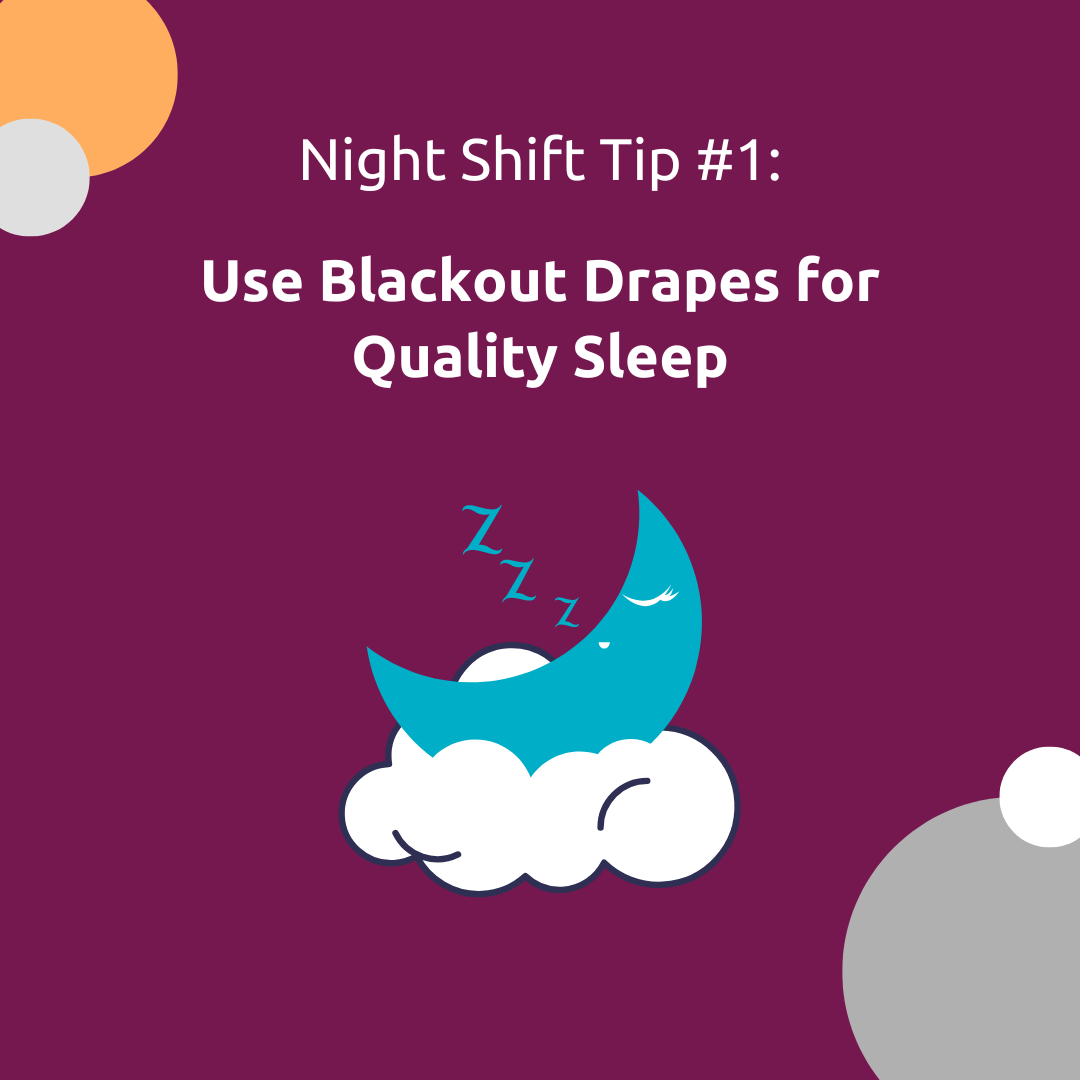
Use Caffeine Wisely
A good cup of coffee or tea can be the perfect pick-me-up you need at the beginning of your shift because caffeine blocks Adenosine, the neurotransmitter that tells your body it's getting sleepy. However, because of this blockage, caffeine makes it harder to fall asleep. It's generally recommended to avoid caffeine for about 8 hours before bedtime. This guideline can vary based on individual sensitivity to caffeine, but 8 hours provides a good rule of thumb for most people.
Caffeine has a half-life of approximately 5 to 6 hours, which means that half of the caffeine you consume remains in your body after this time. Consuming caffeine too close to bedtime can disrupt your sleep cycle, making it difficult to fall asleep and potentially decreasing the quality of sleep you do get. For those who are particularly sensitive to caffeine, it might be wise to extend this window to even earlier in the day.
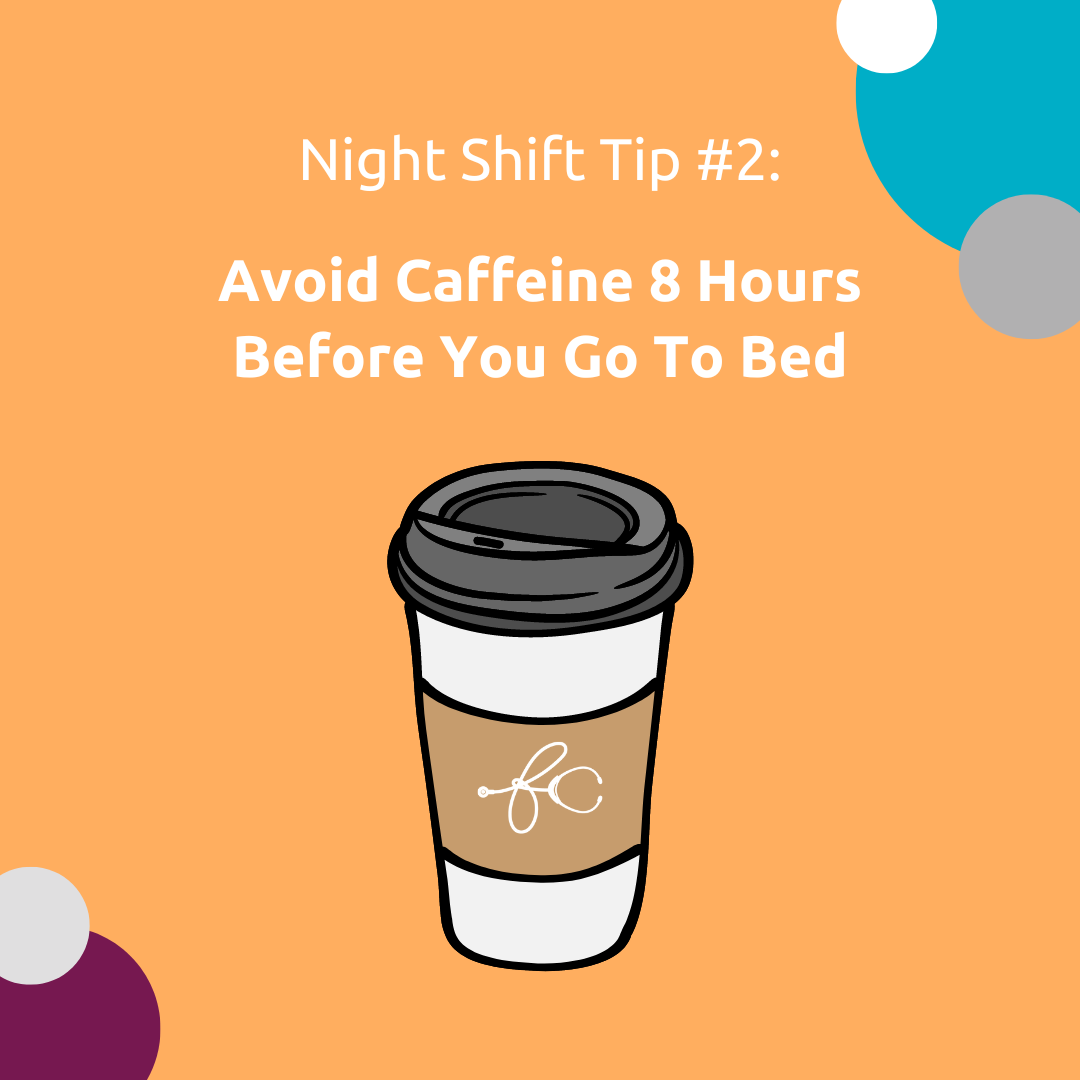
Pack Your Lunch
When you pack your own lunch, you have control over the ingredients and portion sizes, which means you can make healthier choices than you might find in vending machines or 24-hour fast-food options. This is especially important for night shift workers, who may have limited healthy food options available during late hours.
Eating balanced meals and snacks throughout the shift can help maintain stable energy levels and prevent fatigue. Foods with a good mix of protein, healthy fats, and complex carbohydrates can sustain energy better than sugary snacks or high-caffeine beverages that lead to energy crashes.
Looking for inspiration?
3 Easy & Delicious Breakfast Recipes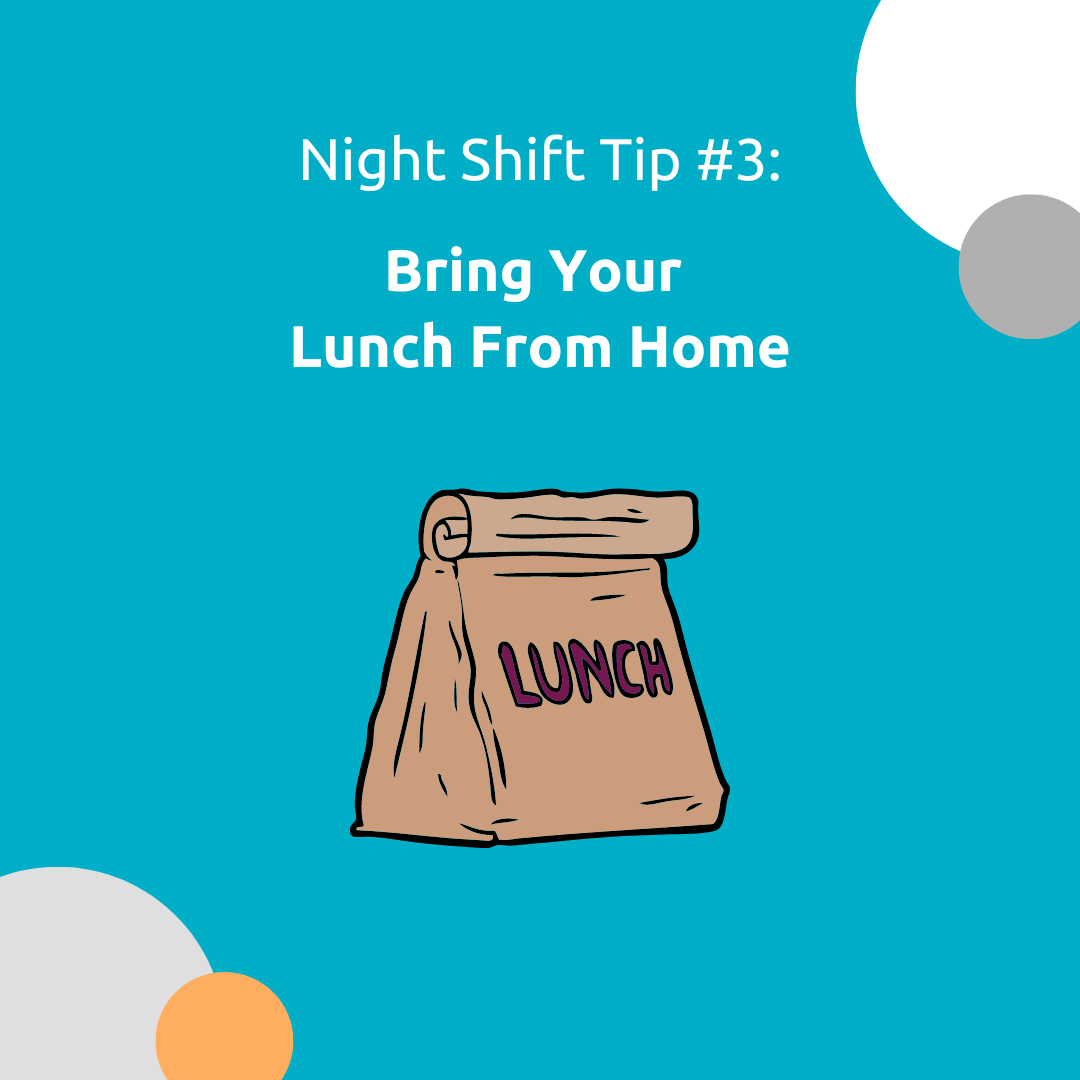
Exercise Before Work
We know it's easier said than done to muster the motivation to work out before you head in for a long night. However, exercise increases blood flow to the brain, which can enhance alertness and wakefulness. This is especially useful for night shift workers who need to combat the natural tendency of the body to feel sleepy during nighttime hours. The physical activity can help wake up both the body and mind, preparing you for the work ahead.
Exercising can increase body temperature for a period of time, followed by a gradual decrease, which can help induce sleepiness several hours later. Timing exercise before a night shift can be a strategic way to ensure that your body is ready to rest once you get home in the morning.
Level Up Your Fitness Routine on Assignment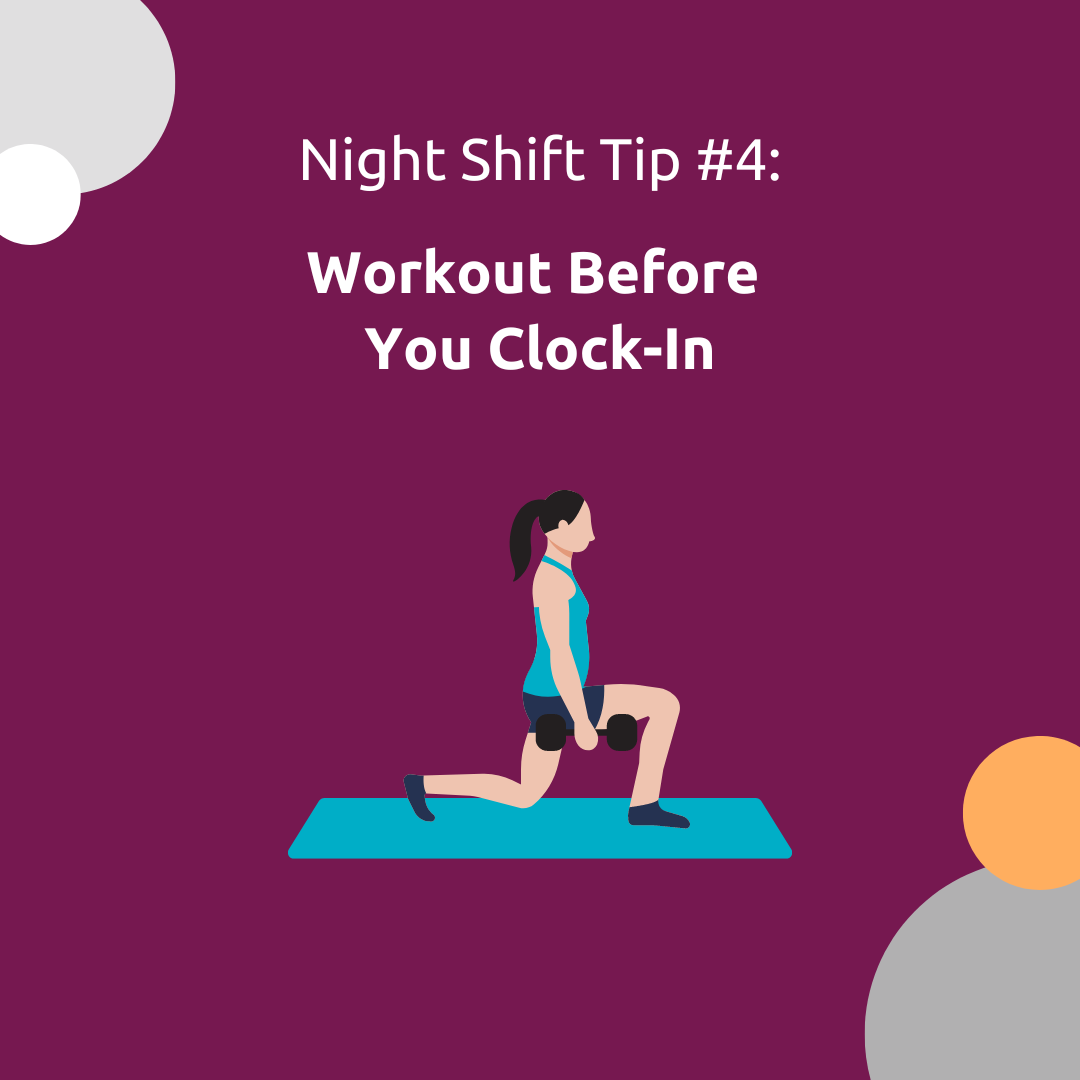
Avoid Going to Bed Right After Your Shift
The first few days of night shifts might be rough while your body adjusts, but don't succumb to the temptation of falling into bed as soon as you get home; your sleep schedule will ultimately suffer, and handling the night hours will be more challenging. Just like with any job, it's often beneficial to have a wind-down period after work to transition from the stress of the job to a more relaxed state conducive to sleep. Engaging in relaxing activities such as reading, listening to soothing music, or practicing mindfulness can make it easier to fall asleep and improve sleep quality once you do lie down.
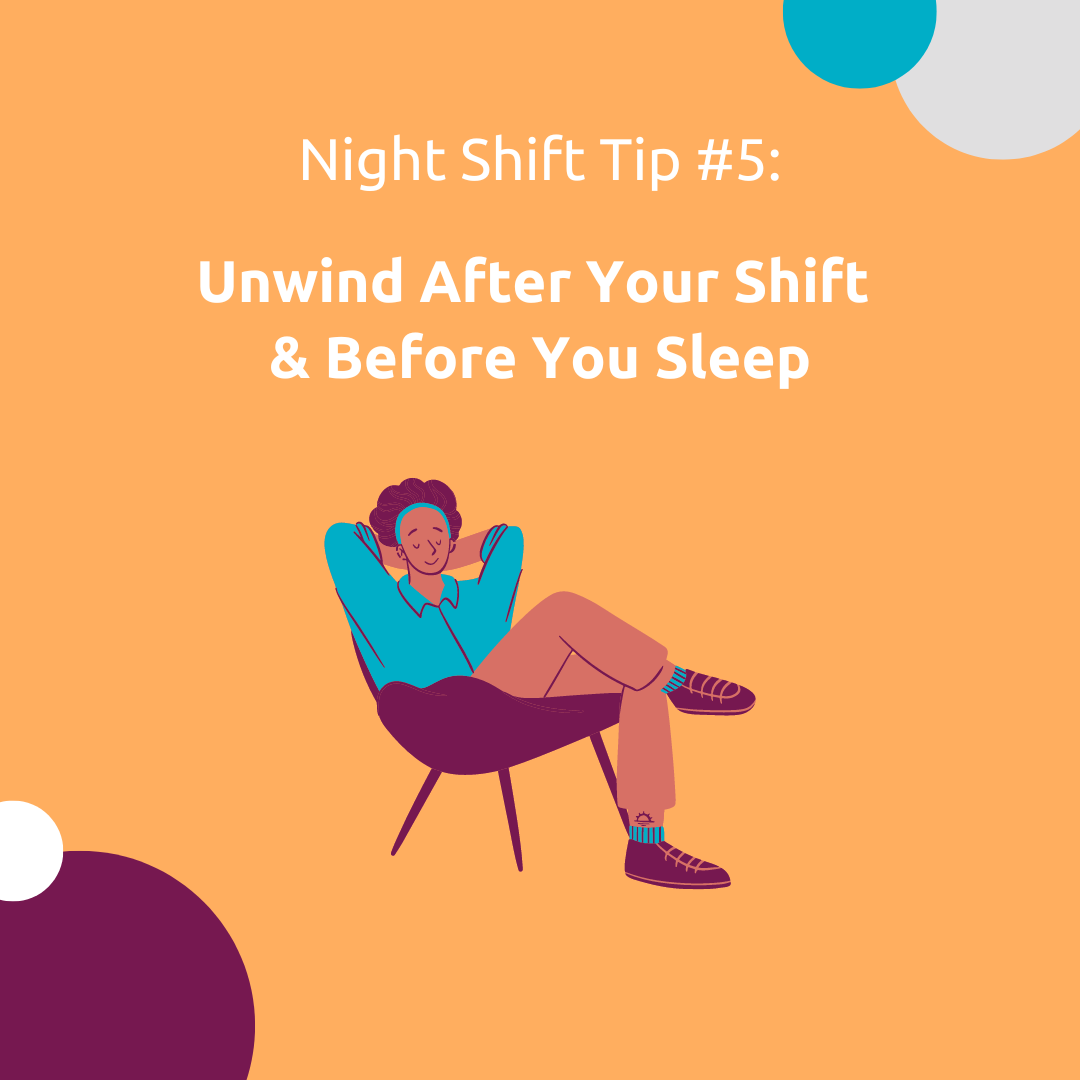
Prioritize Self-Care
How can you expect to provide high-quality patient care if you don't care for yourself? The isolation and irregular schedules of night shift work can contribute to feelings of loneliness, depression, and anxiety. Self-care activities like connecting with friends and family, pursuing hobbies, and practicing mindfulness or relaxation techniques can help maintain mental and emotional health. Night shift workers who actively engage in self-care are better able to enjoy their time off, maintain healthier relationships, and feel more fulfilled both personally and professionally.
Not sure where to start?
Self-Care Tips for Healthcare Travelers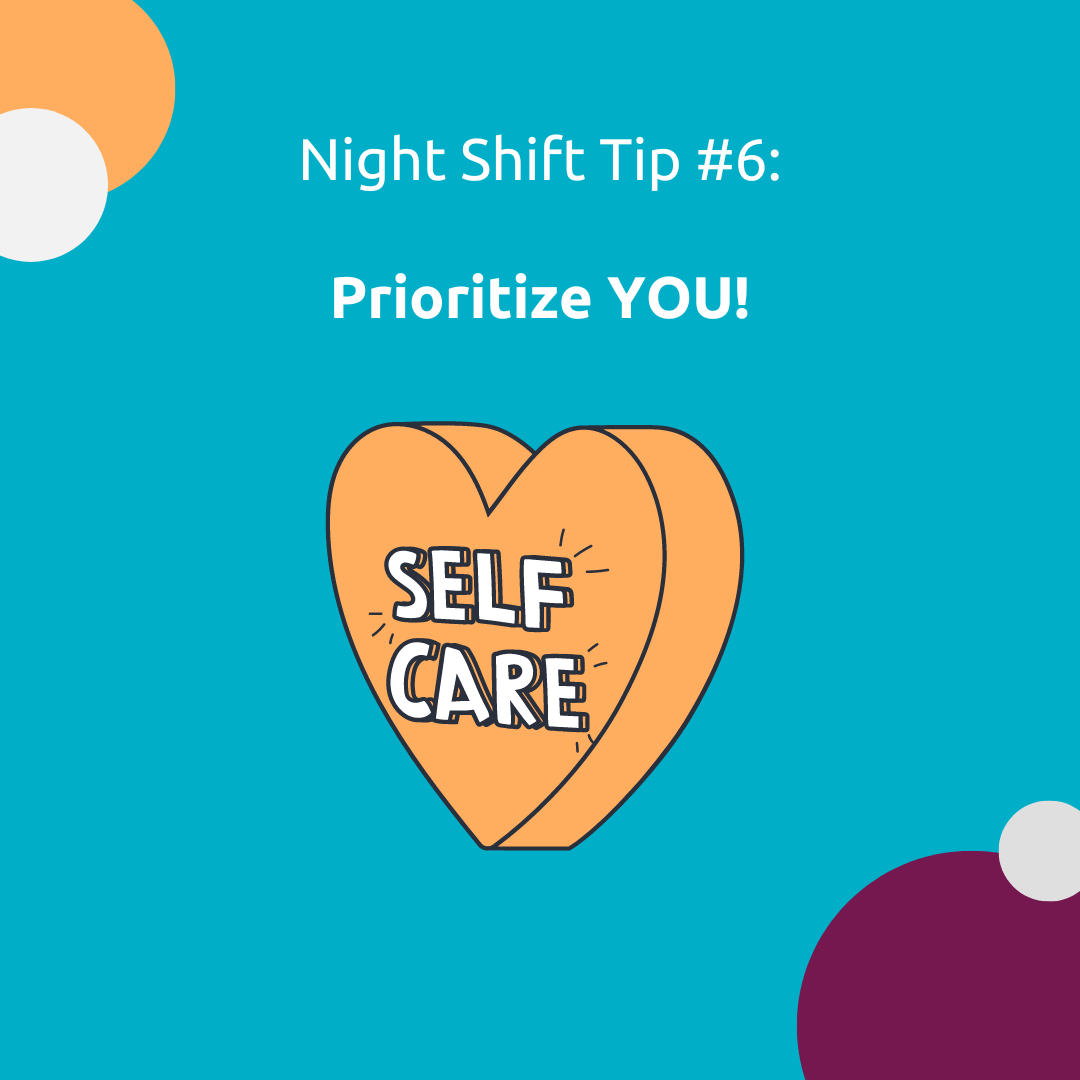
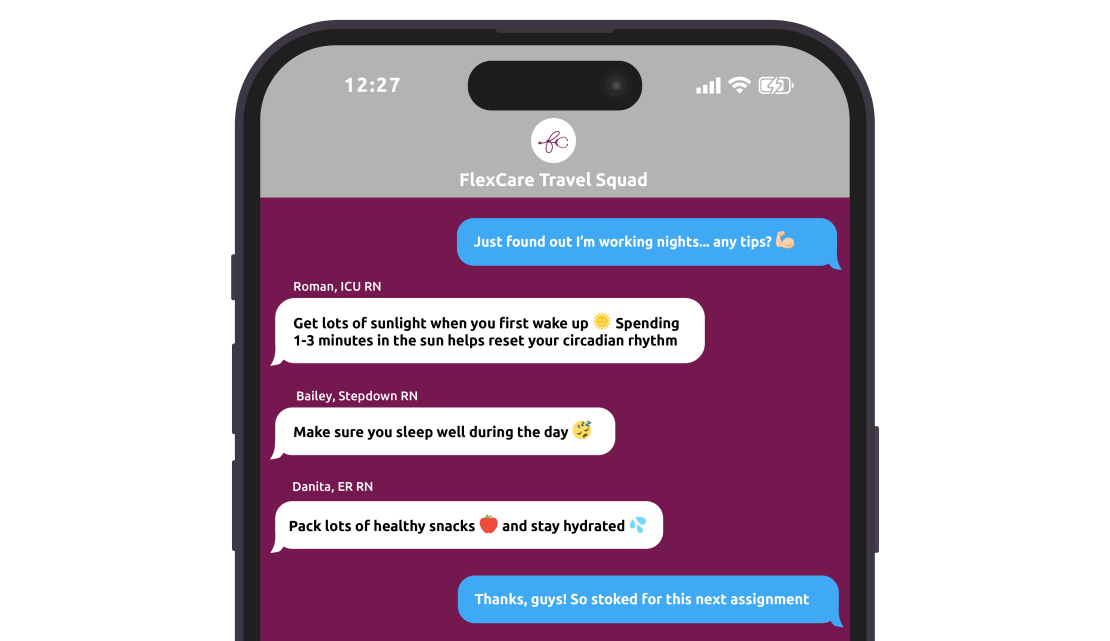

Being flexible and adaptable to different working environments and schedules is essential as a healthcare traveler. Embracing the new experiences and opportunities of working in various locations is a great way to learn and grow as a healthcare professional.
Ultimately, the key to success on the night shift is finding a balance that works for you. By caring for yourself and approaching your work with a positive mindset, you can make the most of your travel nursing experience while providing your patients with the highest quality of care.